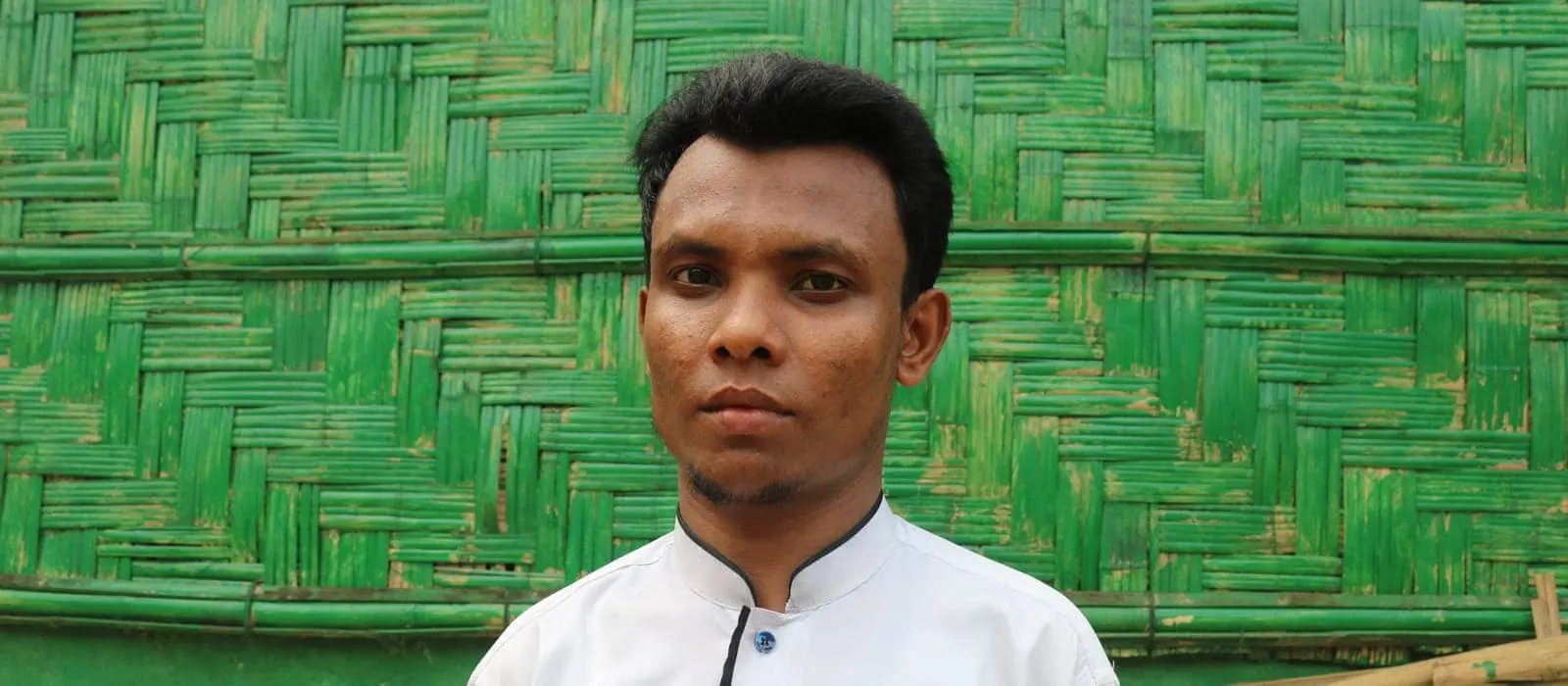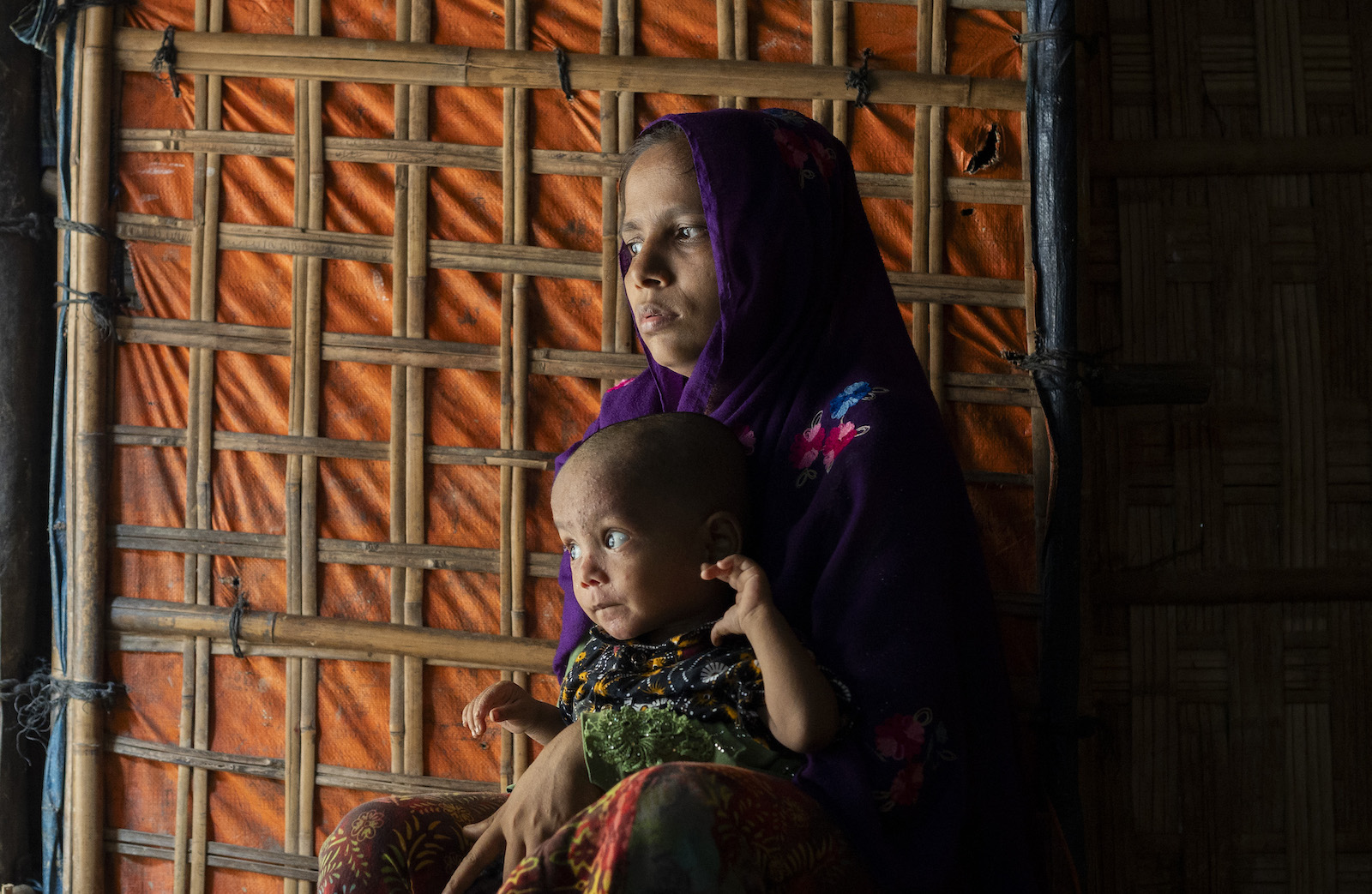There are over 70 million forcibly displaced people worldwide — nearly a million of them Rohingya people who have sought refuge in Bangladesh from persecution in Myanmar. This is one man's story of he how became a refugee and then turned his own personal suffering into a mission to care for others.
Tragedy and Loss
At home in Myanmar's Rakhine State, Amir* never imagined he would one day become a refugee. In mid-2017, his wife had just given birth to their first child, a little baby boy. Life was relatively good and they were discovering the joy of parenthood. However, that joy was to be short-lived. In August of that year, as part of a major escalation of racial tensions, their village was attacked and they were forced to flee.
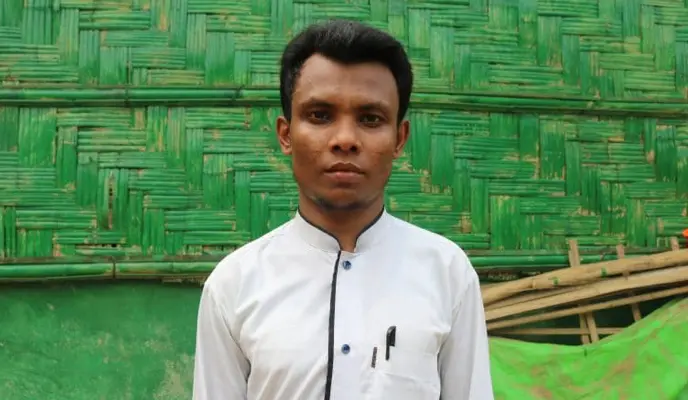
Amir’s mother, wife, and son managed to make it to a boat making towards Bangladesh. He and his father became separated and were taken captive, but managed to escape separately. Amir was badly injured. "They stabbed me in my back and my leg to ensure I could not leave."
Amir and a group of his fellow captives eventually found a way to escape from where they were being detained. Heroically, they risked their lives to rescue others before they fled. "We knew that they were not going to spare a single female, no matter what age she was," he says. "So we tried to get the females out first. No matter if it cost our lives."
Tragically, Amir would learn that the boat carrying the rest of his family capsized. In agonizing pain from his stab wounds and close to unconsciousness, he searched for two days but never found them.
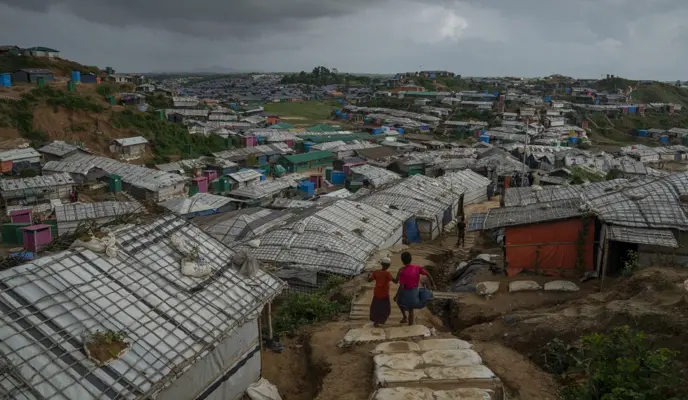
Refuge and Recovery
In October 2017 Amir reached at Balukhali refugee camp in Cox's Bazar, Bangladesh and was admitted to a hospital to be treated for his wounds. Slowly he began to rebuild his life. He now works as a volunteer in one of Concern’s nutrition centers, which provide recovery support for young children who are severely malnourished.
"I feel much better now. I like working with the children."
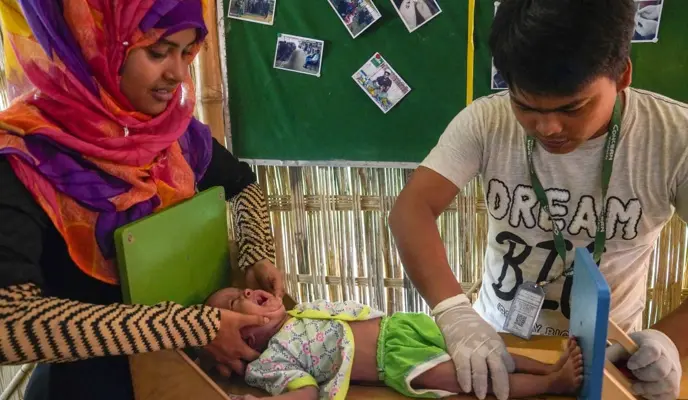
Visiting households, he screens children and refers those who show symptoms to the nutrition centers.
He says, "I never imagined I could stand back up — I was traumatized from the death of my family. I feel much better now. I like working with the children."
Amir has since re-married and he and his wife now have a young baby boy. Together, they live alongside his grandmother, father, and younger sister and he finds joy both in his work and spending time with his family. "I lost my own child and then gained another, but I also watch over so many in the camp."
* Name has been changed for security reasons.

